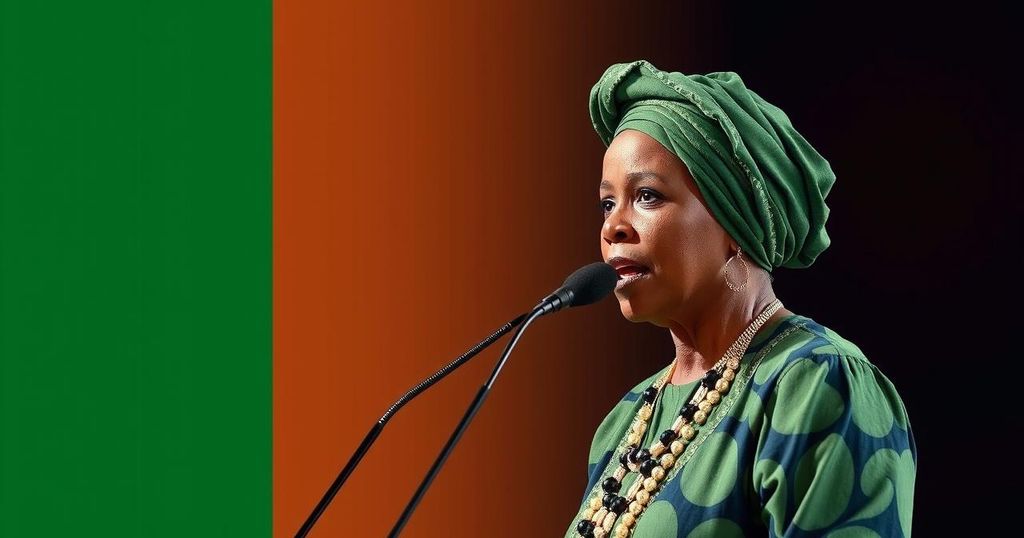Namibia is voting in a presidential election where Netumbo Nandi-Ndaitwah, the current vice president, is a leading candidate to potentially become the nation’s first female leader. High unemployment rates and public discontent with SWAPO’s governance pose significant challenges. Approximately 1.4 million citizens are registered to vote in this critical election amid notable political shifts in the region.
Namibia is currently casting its votes in a presidential election where 72-year-old Netumbo Nandi-Ndaitwah, a veteran of the nation’s independence movement, is a strong candidate for its first female president. As the current vice president and a member of the ruling SWAPO party, she has gained traction following early voting results from citizens abroad and military personnel. Despite SWAPO’s long-standing governance since Namibia’s independence in 1990, there is rising public dissatisfaction due to high unemployment rates and economic struggles, particularly among the youth.
The election comes in the wake of significant political upheavals in the region, where opposition parties have seen unexpected victories against long-standing ruling parties. Approximately 1.4 million Namibians are registered to vote, and the election will decide both the presidency and parliamentary representation. Nandi-Ndaitwah has outlined her intentions to address pressing issues, such as unemployment and women’s rights, though she faces skepticism regarding the feasibility of her ambitious job creation plans.
Other candidates are also contesting the presidency, including Panduleni Itula, who previously ran against SWAPO as an independent. Should no candidate achieve a majority of over 50% of the votes, a runoff will be required, a situation that has yet to occur in Namibia’s electoral history. Following the passing of President Hage Geingob in February, the stakes surrounding this election have intensified, as Nandi-Ndaitwah could usher in significant change in a nation led predominantly by male leaders.
The election in Namibia marks a pivotal moment for the country’s political landscape, particularly with the potential election of its first female leader. SWAPO, the ruling party for more than three decades, faces challenges due to high unemployment rates and economic challenges intensified by the global context. Amid the backdrop of recent electoral upsets in the region, the electoral landscape is evolving, highlighting shifting voter sentiments and expectations, especially among younger demographics. The high stakes of this election, compounded by the previous president’s death, underscore the urgency for effective political change in Namibia.
In conclusion, Namibia’s presidential election represents a significant opportunity for potential change, particularly with Netumbo Nandi-Ndaitwah’s candidacy. As SWAPO faces growing criticism and challenges to its authority, the electorate is driven by pressing socioeconomic issues. This election could reshape Namibia’s political future and possibly introduce the nation’s first female president, reflecting broader shifts in leadership dynamics across the African continent.
Original Source: abcnews.go.com






